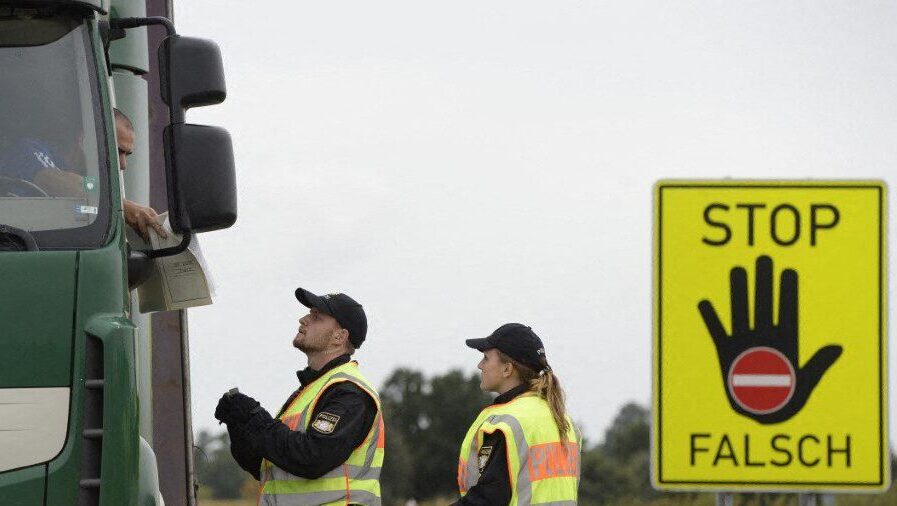The European Union is preparing to implement a plan aimed at revising the post-war refugee convention that restricts nations from rejecting asylum seekers at their borders, writes The Times.
According to the British daily, EU interior ministers last Thursday discussed a diplomatic paper drafted by Poland, claiming that the United Nations’ 1951 Refugee Convention is no longer fit for purpose and takes away the ability of nation-states to defend their borders and turn illegal immigrants away.
EU governments are concerned—the document states—that national powers allowing “limitations on the application” of the right of asylum, are currently only permitted in “extraordinary situations” that do not take the “new reality” into account.
The 1951 convention establishes that no asylum seeker may be returned to a country where his or her life or freedom could be seriously threatened. The convention is seen as a major obstacle to new measures such as creating centres outside the EU where asylum seekers can be taken while awaiting a decision.
“It should be noted that these principles were developed after the end of the Second World War, and were characterised by a very different geopolitical situation to that of today,” the diplomatic paper says.
If EU countries were to implement tougher asylum rules that ignore the refugee convention, the move would be one of the most considerable shifts in migration policy in several decades.
EU member states have for the past decade been burdened with a massive influx of migrants from mostly African and Middle Eastern countries who are crossing safe countries on a daily basis to reach their desired destination—mostly Western European countries—in the hope of receiving generous welfare benefits.
The number of asylum seekers has been continuously rising for the past few years, reaching 1.13 million in 2023 and 1.01 million in 2024.
Mass migration into Europe has been driven by pro-migration policies as well as the EU’s inability and unwillingness to defend the 27-member bloc’s external borders. EU policies, such as the Migration and Asylum Pact, which was adopted last year, have only succeeded in prompting more migrants to make the often perilous journey to Europe.
Migration has contributed to soaring crime rates and terrorist attacks carried out by radical Islamists, and voters in Europe are expressing their anger by increasingly voting for anti-immigration parties.
As recently as last week, the centre-right CDU/CSU alliance in Germany, together with the right-wing Alternative für Deutschland (AfD) pushed through a non-binding motion in parliament that would allow the country to close its borders to illegal migrants as well as genuine refugees lacking identification papers. If such a proposal were indeed implemented, it would effectively bring an end to the border-free Schengen Area.
The move followed the murder of a 2-year-old toddler in the German city of Aschaffenburg by a failed asylum seeker.
In Poland, the centrist-liberal government adopted a draft law that would enable the country to temporarily suspend the right to claim asylum. Finland’s parliament also adopted legislation that would allow guards to turn away asylum seekers at the border under certain circumstances.
As Hungarian Prime Minister Viktor Orbán recently said: eventually, every European leader will come to the same conclusion that he has been reiterating since the beginning of the migration crisis in 2015—namely, that protecting the external borders of the EU and establishing hotspots outside of the bloc for migrants to hand in their asylum requests is the only solution.
Currently, Hungary is the only EU member state effectively protecting its borders—which are also the EU’s external borders—by turning back illegal migrants and insisting that genuine asylum seekers hand in their applications at Hungarian embassies in neighbouring countries. Instead of being praised for this practice, the country has been punished and fined by the European Court of Justice.
Speaking last week at the EU interior ministers’ informal meeting in Warsaw, Hungarian state secretary for internal affairs Bence Rétvári said:
It is unacceptable that while more and more member states are activating border controls against illegal migration, Hungary is obliged to pay one million euros in fines each day due to its border fence which protects the external borders.
Participants at the meeting concluded that less than 10% of illegal migrants are being deported. The bloc has consistently failed to repatriate failed asylum seekers and migrant criminals.
As the diplomatic paper, cited by The Times, states:
Member state societies’ ability to host large numbers of migrants is increasingly being put to the test, especially in situations where some migrants do not seek to integrate into the host society but instead to form separate communities in which norms and rules that deviate from European values may be cultivated.






